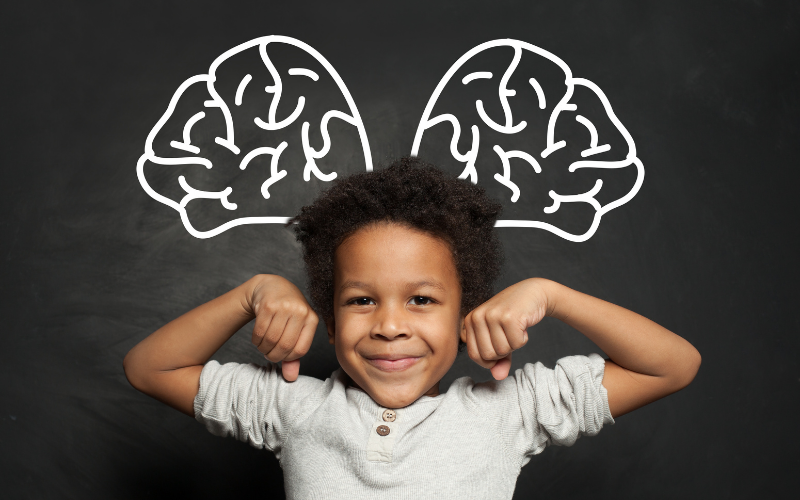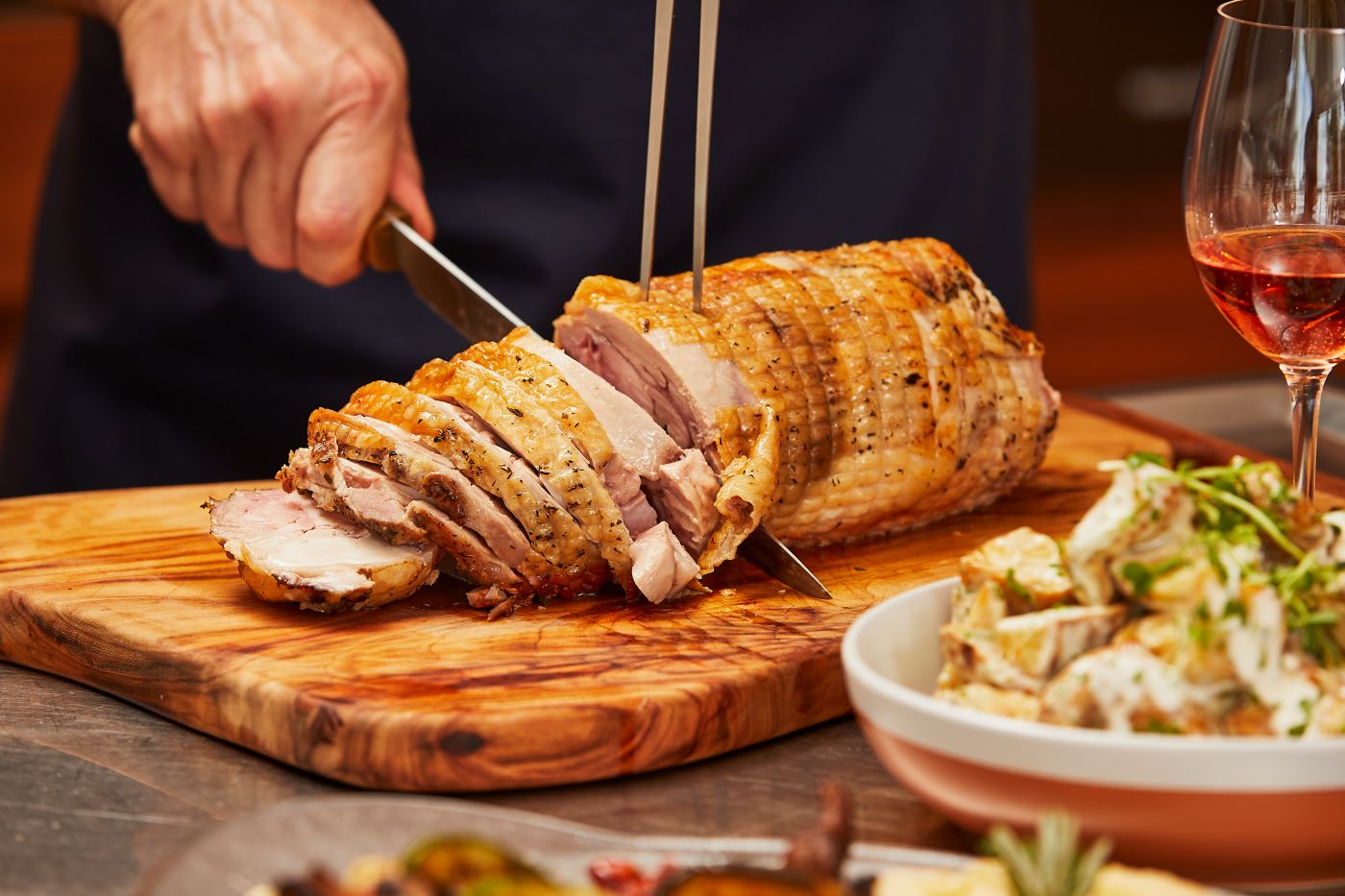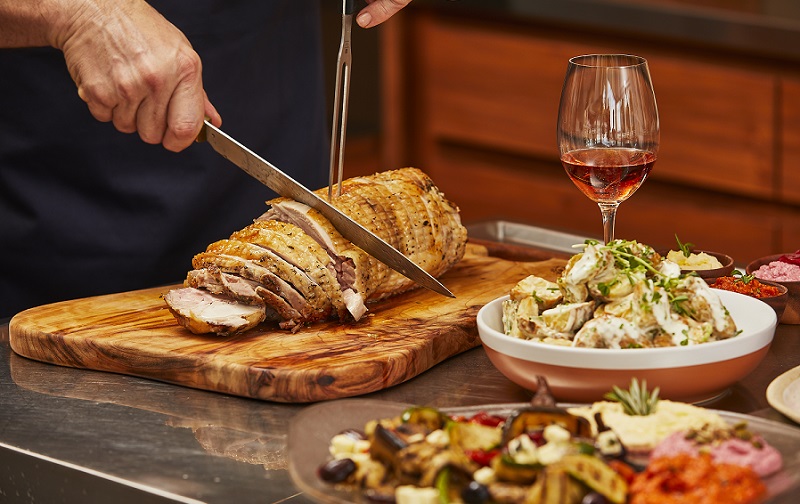Healthy kids: best brain foods for kids

Good nutrition is vital for healthy kids. That’s because growing and developing bodies need nutrients and lots of them! The brain is no exception, it needs a huge supply of certain nutrients to optimally grow and function. That’s where brain foods for kids come in.
Interesting fact - your child’s brain grows to 80% of its adult size by the time they are two years old. But don’t think that the need for good kids nutrition drops off after two years. Not at all! In fact, during the childhood years, the brain continues to expand and develop, in particular the prefrontal cortex. This part of the brain is responsible for many important critical thinking functions including memory, planning, focus and decision making – all areas we want our children to excel in.
Top 8 foods for kids brain health
Below we highlight the most crucial eight foods for child and adolescent brain and cognitive function development. You’ll learn about kids nutrition specifically as it relates to brain health and get some tips on how to incorporate those key foods in your children’s diet.
1. Seafood – for omega 3 fats, zinc + iodine.
The brain uses fat as fuel and its favourite fats are omega 3 fatty acids! They play a role in neurotransmitter function too. Zinc and iodine are also important brain development nutrients with deficiencies resulting in poor learning and attention, or cognitive impairment. Seafood also offers high protein levels and B12, both a bonus for kids nutrition.
Studies have shown that eating fish is linked to higher IQ scores and better school performance among children. That alone is a powerful reason to ensure you incorporate the recommended 2-3 servings per week of seafood in your kids meals. Good ways to get seafood and omega 3’s into your children are salmon patties, tuna pasta bake, grilled fish, sushi, or our Under the Sea healthy kids meal.
Do be careful to choose mostly low mercury fish. Here’s a good guide to mercury in fish for your reference.
2. Leafy greens – rich in folate.
Leafy greens are rich in folate, carotenoids and a whole host of other antioxidants that support brain health. Plus, theire high in fibre too. Folate in particular is important for brain function and studies have shown that an adequate supply of folate in the diet is linked to better cognitive scores in children. We know that greens are hard to get into the diet of a child but it’s oh so important that you try!
Leafy greens include spinach, kale, cabbage, lettuce, rocket, watercress and many more. If you struggle to get your child to eat these must-have veges, try chopping finely and sneaking them into dishes like Bolognese and casseroles; creating tasty salad dressings to top lettuce leaves; make kale chips; or grow them at home, which helps kids get to know and accept them. Starting young with familiarising your child with greens will certainly save you many mealtime battles later on.
3. Eggs – very high in choline.
Eggs are super nutritious and so versatile too. The choline which is highly concentrated in the yoke, helps kids concentration and memory. Eggs also contain good doses of protein, iron, folate, B12 and Vitamin A, all of which are important for growth and repair. Try boiled eggs for breakfast or snacks, omelettes, or egg sandwiches. Other high choline foods include liver, salmon, cod, broccoli and cauliflower.
4. Berries – offer high antioxidant content.
Antioxidants such as flavonoids found in berries, have an anti-inflammatory effect, which is good news for the body and brain. A good intake of berries has been linked to better academic performance and memory in children. Berries are easy to incorporate as a snack, a breakfast cereal topper or as dessert with yoghurt.
5. Veges – great sources of antioxidants.
All vegetables of all colours are important in kids meals as they are nutrient powerhouses. Those with rich, deep colours such as pumpkin, carrots, capsicum, zucchini, tomato, eggplant are particularly high in potent phytochemicals that keep brain cells healthy and strong. Your kids will adore our Ninja Chicken and Marco Pollo meals which include some of these vegetables.
6. Nuts & Seeds – packed with healthy fats + fat-soluble nutrients.
Nuts and seeds are also high in protein and fibre and contain excellent doses of Vitamin E, iron, selenium and folate.Did you know that a handful a nuts a day can help you live longer? That’s right. They can also reduce your risk of heart disease, cancer and help you maintain a stable weight. We all want those health benefits for our kids!
Note that many schools are nut-free so be sure to keep your nut and seed consumption to home. Eat them whole or add them to cereals, in cakes and muffins, as nut butter on toast. Nut meal can also be easily added to smoothies, baked items like pancakes, slices or muesli bars.
7. Meat or vegetarian iron sources.
The highest sources of iron are found in red meat such as beef, lamb, pork, followed by poultry and seafood. Non-meat sources include beans, tofu, leafy greens, oats, nuts and wholemeal products.
Unfortunately anaemia caused by iron deficiency is quite common in children and it’s associated with poorer cognitive development and also with behavioural issues such as ADHD. Additionally, it is associated with fatigue and weakness which can be diabolical for children who should be energetic, busy little beings!
The kids will love our Twisted Angus or Beef Monster meals, both containing iron-rich beef. Eating foods rich in Vitamin C at the same time can help boost the absorption of iron. So be sure to include foods such as tomatoes, capsicum, citrus or berries with their meal.
8. Wholegrains – packed with B vitamins.
Wholegrains have been called ‘grain for the brain’ as they slow the release of sugars which is beneficial for brain health. They're also full of gut healthy fibre.
In studies, kids who ate wholegrains for breakfast outperformed in terms of memory skills and attention, compared with children who started the day with high sugar cereals or no breakfast. Porridge makes an excellent breakfast for kids as it’s nutritious and filling. Other good options to incorporate during the day include wholegrain pasta and bread, quinoa, cous cous, buckwheat or low fat popcorn.
What’s for dinner?
It’s fundamental that children acquire the right nutrients to grow up as strong and healthy kids. Starting early means establishing a foundation of good eating habits that your child can apply throughout life. Brain growth, development and function rely on your kids eating enough brain foods to deliver optimal amounts of brain loving nutrients. To give your child the best chance, feed them a wide array of healthy, wholefoods including those listed above to support their memory, concentration and overall cognitive function.
If coming up with imaginative and nutritious dinner options for the kids is getting you down or you lack the time for cooking, check out our new range of kids meals. Created for kids and made by chefs, they are designed to look appealing, taste great and satisfy hungry tummies.
Head over to see our Kids Meals menu here











